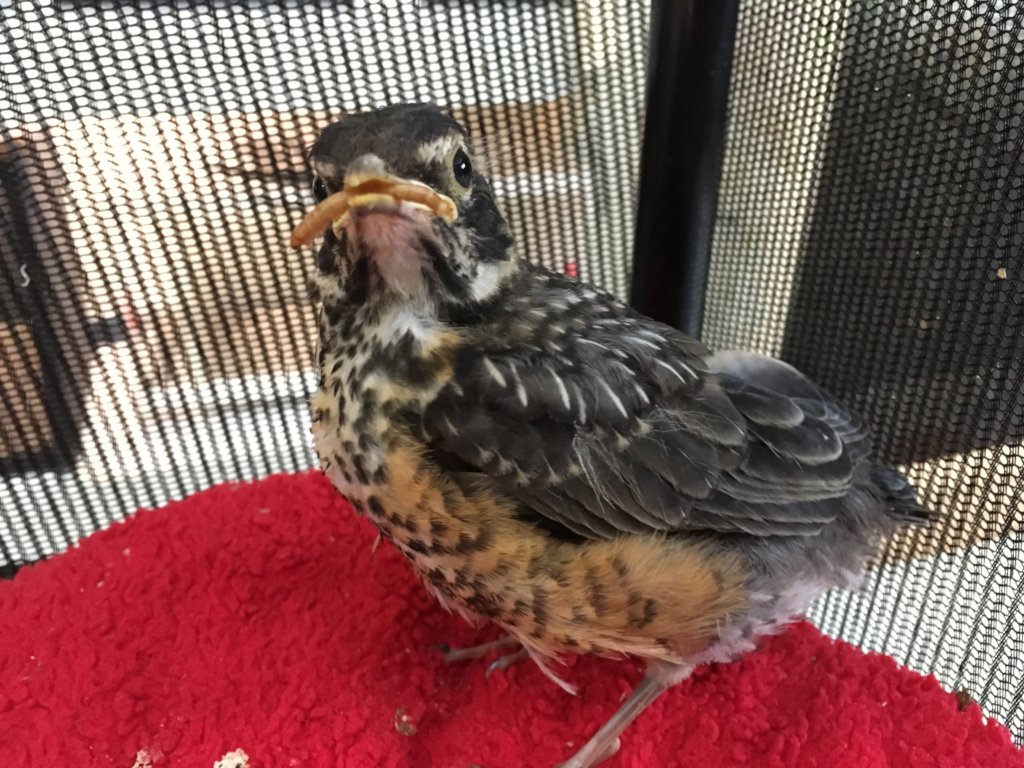By Yvonne Wallace Blane | Co-founder, Fellow Mortals
When a baby bird comes into care, it's never simple. If the songbird is a healthy nestling and has been blown from the nest by wind, we provide information and instruction to the finder to warm the bird and then replace it in the nest and watch for the parent to return to feed. If the bird is fledgling, most often the caller describes a healthy young bird that simply doesn't have the strength or feather development to do more than hop, and we explain that it will be a few days while it grows and gains the strength to start taking short flights.
If we determine that a baby bird needs help, it's because it is injured in some way, or its condition tells us that something has happened to the parents, leaving it an orphan.
Most of the baby birds that come to us are orphaned, but not badly injured. Of the more than 100 American robins we admitted this year, about 10 percent had fractures, including a young nestling that was injured during a storm and ended up with a fractured leg (the femur).
We are fortunate to work with a skilled orthopedic veterinary surgeon who routinely puts metal pins into the bones of hawks and owls, fawns and geese, even baby bunnies--but had never pinned the tiny bones of a songbird weighing only an ounce, until one day when a baby came in while he was doing another surgery.
Dr. Scot is an artist. He makes anesthesia and cutting, placing pins and suturing look like everyday tasks, and to him they are!
The little robin went through the surgery beautifully, but when the anesthesia was turned off--he didn't breathe on his own--and everyone watching held their breath--except for Dr. Scot, who literally gave his breath of life to help the robin breathe on his own again.
Four weeks later, the pin has been out a week and the robin is using the leg--perching and flying and picking through insects and fruit along with the rest of the robins who grew up with him.
It isn't often such a small bird, considered a common species in North America, receives the kind of care provided to the most expensive domestic animal -- but it does happen, and it's just another example of the wonderful compassion shown to the wild ones by the people who support Fellow Mortals' work.
While Dr. Scot and others volunteer their time -- it's your donations that provide the specialized diets and care that completes the rehabiltiation story, and results in release for birds like this robin, and so many, many more wild ones.
Project reports on GlobalGiving are posted directly to globalgiving.org by Project Leaders as they are completed, generally every 3-4 months. To protect the integrity of these documents, GlobalGiving does not alter them; therefore you may find some language or formatting issues.
If you donate to this project or have donated to this project, you can receive an email when this project posts a report. You can also subscribe for reports without donating.
Support this important cause by creating a personalized fundraising page.
Start a Fundraiser